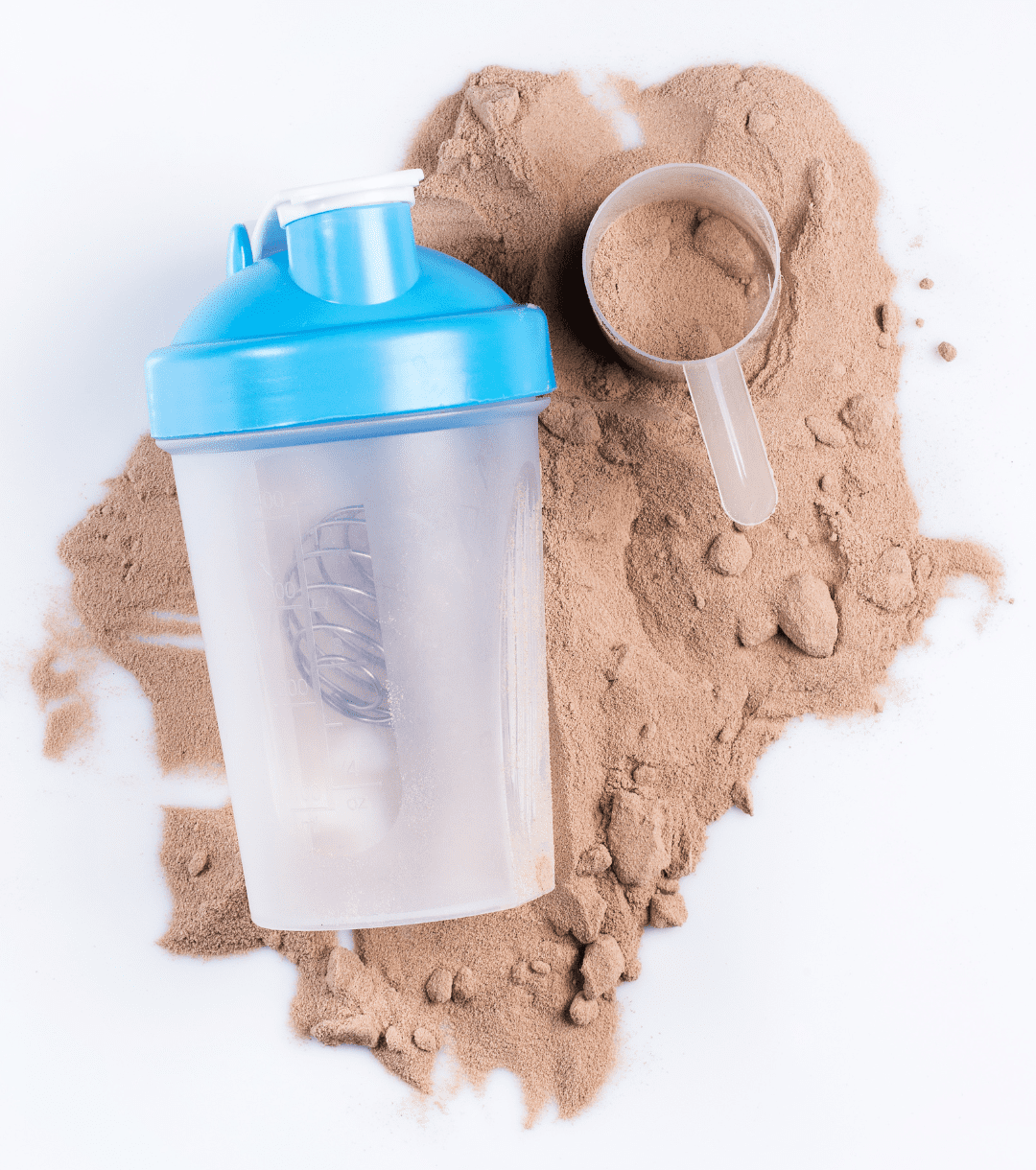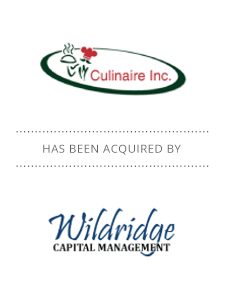Vitamins, Supplements, & Nutrition
TABLE OF CONTENTS:
- CH. 1: Introduction
- CH. 2: Market Overview & Trends
- CH. 3: Key Players in the Vitamin, Supplement, and Nutrition Market
- CH. 4: Recent Deal Flow and Multiples
- CH. 5: Factors that Drive Business Owners in this Sector to Pursue an M&A Transaction
- CH. 6: What Buyers Look for in a Vitamin, Supplement, or Nutrition Target Business
- CH. 7: What to Consider Before Selling Your Vitamin, Supplement, or Nutrition Business
- CH. 8: Key Considerations for Growing Your Vitamin, Supplement or Nutrition Business Through Acquisition
- CH: 9: How to Raise Capital for Your Vitamin, Supplement, or Nutrition Business
Chapter 1
Introduction to M&A in the Vitamin, Supplement, & Nutrition Sector
Despite inflationary pressures and economic uncertainty, consumers continue to spend on vitamins, supplements, and nutrition products that match their health and wellness objectives. In fact, ADM found that 67% of nutritional supplement users across the globe plan to maintain their supplement consumption over the next 12 months. With consumer interest in health and wellness on the rise, and new science-backed products coming onto the market all the time, many investors find this sector very attractive right now.
As the owner of a vitamin, supplement, or nutrition products business, you may be wondering how the market is trending, whether now is a good time to sell the company or take on a majority investor, and what you should consider before proceeding. This guide can help.
In this guide to M&A in the vitamin, supplement, and nutrition sector, we review the consumer behaviors and trends driving growth for these products and why investors find this sector attractive now. The guide also reviews recent deal activity in this sector, the major players involved, what strategic and financial acquirers look for in a vitamin, supplement, or nutrition product business, what to think about before selling your company or acquiring one, how to raise capital, and why Forbes is the right partner to help you achieve an exceptional outcome when you’re ready to exit your business or need to raise capital.
Per data from IBIS World, the vitamin and supplement sector is projected to enjoy modest annual revenue growth over the next five years, with revenue forecast to reach $41.6 billion by 2028.
Chapter 2
Market Overview & Trends
The combination of an aging population and a boom in health consciousness continues to benefit manufacturers of vitamins, supplements, and nutrition products. Per data from IBIS World, the vitamin and supplement sector is projected to enjoy modest annual revenue growth over the next five years, with revenue forecast to reach $41.6 billion by 2028. And according to Grand View Research, the brain health supplement market alone is anticipated to reach $23.4 billion by 2030. Meanwhile the number of businesses in the vitamins and supplements sector is forecast to grow by 2.9% over the same period, offering consumers even more choices while adding to an already crowded, fragmented space.
A number of consumer behaviors and trends are fueling demand for vitamins, supplements, and nutrition products, including:
-
- Rising per-capita income and discretionary income, which is expected to drive many consumers to trade up to premium and organic nutrition products, even as inflation eats into their overall budget
- An aging population that is especially interested in supplements with anti-aging properties, those that support cognitive wellness, or supplements that target age-related chronic diseases
- A shift toward condition-specific supplements, such as digestive health, joint health, or immune support products
- The escalating cost of pharmaceutical products, encouraging more consumers to consider supplements and other non-traditional therapies
- A dramatic rise in ecommerce sales, fueled in part by pandemic restrictions on brick-and-mortar retailers
- A post-COVID surge in interest in preventive health measures and overall wellness, among general consumers and recreational athletes alike and across all age categories

The latter is an especially big contributor to the increased demand for vitamins, supplements, and nutrition products. A McKinsey & Company survey of approximately 7,500 consumers in six countries found that 79% believe wellness is important and 42% view it as a top priority. These buyers include wellness enthusiasts who follow brands on social media; an increasing base of socially responsible consumers who seek brands that only use clean, natural, sustainable ingredients; and price-conscious buyers who want the best deal on the nutrition products they value.
While much of the growth in this sector has come from small, niche products, both branded manufacturers and contract manufacturers have demonstrated their ability to excel in this arena. As a result, today’s consumers have more product choices and more purchasing options than ever. For some products, e-commerce sales are growing at a faster pace than sales through traditional channels like mass merchandisers (both grocery and drug chains), club stores, and specialty retailers like Vitamin World and GNC.
Yet, despite the positive momentum and considerable tailwinds, businesses in this sector still face challenges on several fronts. A saturated, fragmented market is fueling a consolidation trend that is expected to continue for the foreseeable future. Other than Nature’s Bounty, which represents an estimated 0.7% of the market, no other manufacturer owns a measurable share. Meanwhile, regulatory oversight and media attention are both on the rise, fueled by product recalls, product mislabeling instances, and studies casting doubt on supplement efficacy or safety. The FDA’s “Know Your Supplement” Campaign has only heightened consumer attention and scrutiny.
Despite these challenges, continued innovation is bringing new products to market all the time, often targeting a very specific buyer segment or health condition. Though the market is quite saturated, industry experts believe there is room for new products in the herbal and sports nutrition categories in particular. Consumers are also gravitating to new offerings that can back their efficacy claims with clinical studies and other scientific evidence, along with products aimed at brain, digestive, or cognitive health as well as immune support.
Whether it’s a branded manufacturer that owns and controls its own formulations and other intellectual property (IP) or a contract manufacturer producing private label or white label products, a growing number of companies is reaping the rewards of the considerable tailwinds fueling demand for vitamins, supplements, and nutrition products. And that has caught the attention of the investor community.
Many investors view the vitamin, supplement, and nutrition sector as an appealing space and an opportunity to consolidate a fragmented market. Large national or multinational companies are scooping up smaller specialty businesses and private equity (PE) groups are building out their portfolio companies, whether to add new capabilities, reach a new customer segment, broaden their product lines, expand their foothold in online and direct-to-consumer (DTC) channels, or add subscription services that generate recurring revenue.
In turn, vitamin, supplement, and nutrition product companies that fit the profile of what a strategic acquirer or financial buyer is looking for will find it a good time to bring the business to market.
Ready to Discuss Selling Your Vitamin, Supplement, & Nutrition Company?
Chapter 3
Key Players in the Vitamin, Supplement, and Nutrition Market
Both strategic acquirers and financial buyers are taking a keen interest in this sector, with particular attention on science-backed brands that can support efficacy claims and contract manufacturers with a strong client base and advanced production capabilities. Though total deal volume in the sector is down—from a peak of 137 transactions in 2021 to a low of 10 through mid-year 2023—investor interest is expected to keep M&A activity moving at a moderate pace through year-end 2023.
Strategic acquirers represent the lion’s share of M&A activity for the sector, involved in 80% of the deals announced or closed this year. Many large companies in this space are competing to purchase specialty businesses that can expand their offerings with a new and innovative condition-specific supplement or a company that can open doors to new customer segments.
Some of the most notable vitamin, supplement, and nutrition M&A deals completed by strategic acquirers over the last 18 months include:
-
- Roquette Freres’ acquisition of Qualicaps Co., Ltd., a manufacturer and distributor of pharmaceutical and health food capsules
- The sale of Adare Pharmaceuticals, a developer and manufacturer of postbiotic drugs, to DSM-Firmenich
- The acquisition of US Pharma Lab, Inc., which develops and manufactures herbals, minerals, vitamins, amino acids, and specialty dietary supplements, by Biofarma S.r.l.
- Thorne HealthTech’s purchase of PreCon Health, which develops and manufactures dietary supplements that support pre- and post-impact brain health
- The sale of AquaCap, which manufactures liquid filling of two-piece capsules for nutritional supplements, to Vantage Nutrition
- The sale of Best Formulations, a contract manufacturer of nutraceuticals, dietary supplements, and other products, to Sirio Pharma Co.
- Nestle Health Science’s acquisition of Orgain LLC, maker of plant-based nutritional and organic food supplements
Financial sponsors like PE groups also view this sector as an attractive class. Both branded manufacturers and large contract manufacturers in this space are appealing to PE groups that operate portfolio companies these targets can complement, whether in terms of product mix, production capabilities, or distribution channels. And while they are less active in this space than strategic acquirers, their percentage of deals in this sector continues to rise as they seek to create and expand on nutrition-focused platform companies.
Some of the most recent deals in this sector completed by financial buyers include:
-
- Lion Equity Partners’ acquisition of Country Life, manufacturer of vitamins, supplements, and nutrition products
- Butterfly Equity’s purchase of Milk Specialties Company, which manufactures science-based milk and whey products for sports nutrition and functional foods
- The purchase of TruFood, a contract manufacturer of private-label nutrition bars, protein bars, and other nutrition products, by Mubadala Capital
Chapter 4
Recent Deal Flow and Multiples
Heightened interest in health and wellness has helped to spur deal momentum for vitamin, supplement, and nutrition businesses across both branded companies and contract manufacturers. With consumers more willing than ever to purchase these products online, high-quality DTC companies are especially attractive targets, either as strategic add-ons or as PE platform investments.
For any business owner who is considering selling the company, key questions often revolve around valuation multiple expectations. While deal multiples are dependent on many variables, including the current M&A environment, the type of business has a significant impact on a company’s valuation.
Typically, branded vitamin, supplement, and nutrition businesses trade for higher multiples than contract manufacturers, in large part because a branded company owns the IP and controls the brand. Whereas a contract manufacturer is subject to a given customer choosing to outsource its product production, increasing revenue risk, a branded manufacturer controls its own destiny to a larger extent, which usually translates to a greater growth potential and higher valuation.
While every business is unique and every transaction different, typically branded vitamin, supplement ,and nutrition companies will sell at higher multiples than contract manufacturers in this sector. In addition, investors will place a higher value on the most exceptional companies with the most compelling value propositions. With those caveats in mind, multiples in this space are averaging 9 – 12 times EBITDA, with branded companies skewing toward the higher end and contract manufacturers leaning toward the lower end.
Chapter 5
Factors that Drive Business Owners in this Sector to Pursue an M&A Transaction
Though many factors are driving growth and momentum in this sector, when a business owner contemplates selling a vitamin, supplement, or nutrition products company it is usually to overcome certain challenges to growing the business or capitalize on timely opportunities. The following are among the most common drivers of an M&A transaction in this sector.
Branded manufacturers might seek to:
-
- Diversify their product mix by adding new formulations or new brands that appeal to a different customer base, which might create additional opportunities to sell existing brands to this new segment
- Expand their distribution channels and operate in a more omnichannel environment (e.g., a brick-and-mortar-only company acquiring a business with a strong e-commerce presence or a successful DTC business acquiring a smaller company with a physical footprint)
- Vertically integrate the business by purchasing a contract manufacturer in order to bring that capability in-house
Contract manufacturers might be looking to:
-
- Acquire another contract business that complements its existing capabilities (e.g., the addition of liquid product manufacturing capabilities to a company that only produces dry products currently)
- Acquire one of their current customers as the first step in a strategy to build their own brands
- Obtain the intensive capital required to expand their operation, upgrade equipment or systems, or develop the capabilities to offer additional services such as packaging design/development and fulfillment
Chapter 6
What Buyers Look for in a Vitamin, Supplement, or Nutrition Target Business
Characteristics like these are most important for strategic or financial acquirers evaluating target businesses in this sector.
1. Established Relationships.
Any time a branded vitamin, supplement, or nutrition company has strong partnerships with retailers, it can appeal to an acquirer that is currently stronger on the digital side and seeks to broaden its distribution. The larger the retailer’s footprint, the better.
2. A Diverse and Loyal Customer Base.
When evaluating a contract manufacturer, the buyer will want to see that the business doesn’t have too many eggs in one basket. If just one or two customers make up the majority of a contract manufacturer’s business, a potential buyer will be more reluctant to proceed with the deal due to the revenue risk.
3. Complementary Products.
For strategic acquirers, a branded vitamin, supplement, or nutrition business may be appealing if it can fill a void that the acquirer has in its current portfolio. It could be an innovative formulation or a product that allows the strategic acquirer to expand its reach by appealing to new customer segments. This is especially true at a time when many health and nutrition products are highly specific to certain conditions or customer demographics.
4. Science-Backed Products.
With consumers, the media, and the FDA all heightening their attention on the efficacy claims of vitamin and supplement brands, investors are especially interested in manufacturers that can back up those claims with clinical studies or other scientific evidence.
5. Recurring Revenue.
Investors always find a recurring revenue model appealing because it reduces financial risk. If a branded manufacturer offers its products on a subscription basis and has a large and growing base of subscription customers, the business will be a more attractive acquisition target.
6. A Solid Distribution Network.
Whether it’s brick-and-mortar only, e-commerce only, or omnichannel, the more established and extensive a branded manufacturer’s distribution network, the more confidence an investor will have in its stability and growth opportunities.
Chapter 7
What to Consider Before Selling Your Vitamin, Supplement, or Nutrition Business
Selling your vitamin, supplement or nutrition company is likely to be one of the biggest decisions you’ll ever make, and one that will have long-lasting implications. Questions like these can help guide you as you determine whether it’s the right time to sell and whether your business is prepared for the sale process.
What timing do you have in mind for exiting the business entirely?
If your time horizon for exiting the business is relatively short—whether upon the deal closing or within six to 12 months of the transaction—a strategic acquirer is your most likely buyer. They’re often in a better position than a PE group to replace your knowledge and expertise once you depart.
On the other hand, if you’re looking to stay with the company in some capacity for a few years, then both strategic acquirers and PE groups could be potential buyers. Since a financial buyer will look to grow the business and sell it again down the road, they typically prefer that you’re willing to stay on board and maintain a meaningful amount of equity through the next transaction. And that gives you the opportunity to participate in the continued value growth of the company and have a “second bite of the apple” when the new owner sells the company again.
Have you protected your IP properly?
Whether it’s a product formulation or a well-known brand, your IP is an integral part of the value of your business. Buyers will expect that you’ve taken all necessary steps to protect that value, such as patenting your formulations and trademarking your brands. Before taking your business to market, review all your IP and ensure the proper protections are in place.
Have you secured key customers and employees?
Buyers like to see that you have solid contracts in place, which can help to counteract a lack of customer diversification. That’s especially true for contract manufacturers, which often derive a large portion of their revenue from a small number of customers. They especially look for any significant steps to solidify relationships, either through a multi-year contract or agreement verbiage that makes it difficult for a customer to switch manufacturers easily, making the relationship stickier and reducing revenue risk.
Similarly, buyers look for employment agreements and financial incentives that lock up key talent or at least reduce the risk they’ll depart soon after the transaction closes. For branded manufacturers, that could include the scientists who develop and have deep knowledge of your product formulations.
What are you looking for in a transaction and/or a partner?
The answer to this question will depend, in part, on your plans post-transaction. If you intend to start up another company in this sector, you may run into obstacles with a buyer that requires a non-compete agreement to keep you from becoming a competitor from Day 1. Conversely, you might prefer to stay involved in the business, even if it’s only as an advisor or board director. Whatever your plans and hopes, make sure you’re clear on them before going to market.
Is it important to you that the buyer keeps your brand intact or doesn’t shutter any of your operations? If you’ve built the business yourself, or it’s been in your family for many years, you might prefer a buyer that doesn’t intend to make drastic changes to the company, including changes that could negatively impact employees.
Finally, give thought to your financial goals before beginning the sale process. How much do you hope to net from the sale to achieve your personal objectives? Of course, your expectations need to be in line with the current M&A environment and the many factors that will influence your valuation.
Chapter 8
Key Considerations for Growing Your Vitamin, Supplement or Nutrition Business Through Acquisition
While some founders in this sector are actively seeking an acquirer so they can move on from the company, others aren’t quite ready to exit the business. Depending on your company’s size, lifecycle stage, and objectives, you might find value in acquiring another business to accelerate your growth and improve your competitive position. Buying a business that complements yours can give you access to new customer segments, expand your reach to new geographic markets, increase your manufacturing capacity, or enable you to introduce new, innovative products.
If growth by acquisition is an important part of your business strategy, considerations like the following can help you identify a good-fit target company:
-
- Focus on businesses with products that have a true point of differentiation in the market and compelling messaging that makes that differentiation clear to consumers.
- Steer clear of buying companies that merely offer me-too products that don’t expand your product line or add value in the marketplace.
- Conduct rigorous due diligence to ensure the target company fully owns its IP and has taken proper measures to protect it.
- Confirm that the owner is serious about selling the business at this time, to avoid spending extensive time and energy on a deal that has little chance of closing.
Chapter 9
How to Raise Capital for Your Vitamin, Supplement, or Nutrition Business
For business owners that are not ready to acquire or be acquired, it might be the right time to obtain capital to fund key initiatives or capture liquidity to diversify your net worth. Raising capital is often a precursor to selling the business down the road.
The two main types of capital are debt and equity, and each presents advantages and disadvantages:
Debt capital typically takes the form of bank lending, although some middle market businesses also consider mezzanine financing. While the process to obtain debt capital is relatively fast and straightforward, it can prove a more expensive route, especially in times of rising interest rates. You also need confidence that your current and forecasted future cash flow will be sufficient to service incremental new debt.
Equity capital involves taking on an investor in exchange for providing a minority stake in the business (assuming you’re not selling the business outright). Since minority investments can be structured in many different ways, with many factors to consider, this is a more complicated approach to raising capital than taking on debt. For example, the investor might require a seat on your board and veto power over significant decisions, such as whether you can sell the business.
The best approach to raising capital for your vitamin, supplement, or nutrition business will depend on the nature of your operation to a large extent. A manufacturer with substantial physical assets can use them as collateral to obtain debt capital, whereas an online DTC brand won’t have as many assets to borrow against. However, a business without significant physical assets might consider working with a cash flow-based lender, borrowing against the company’s projected cash flows. If your business is financially sound and your cash flows are strong, cash flow-based lending may be a viable way to borrow to cover short-term needs, such as expanding your staff or beefing up your marketing presence.
Whether you opt for debt or equity, be sure to start the process of lining up your funding early, when your business is financially healthy and your odds of obtaining the optimal rates and terms are high.
Since raising capital is complex, consider hiring an investment banker to serve as your guide toward achieving the best outcome. Your investment banking partner will ask about your capital goals and how you plan to use the funds, then recommend the best capital structure to achieve your objectives, market your business to the right capital sources, and negotiate and finalize the best terms.
The Forbes Guide to Middle Market Capital Formation is an informative and comprehensive resource for business owners that are looking to raise capital.
How Forbes Partners Can Help
Even in a volatile economic environment, the vitamin, supplement, and nutrition sector is growing steadily, attracting the attention of both strategic and financial acquirers. For A+ businesses with a compelling value proposition, it could be a good time to take the company to market, with Forbes Partners guiding you based on our knowledge and experience in the sector.
The investment bankers at Forbes understand the dynamics of the M&A market, the consumer behaviors and buying trends that are fueling growth in this sector, and what’s driving buyers to evaluate vitamin, supplement, and nutrition target businesses. We know who the key buyers are in this market and we have ready access to them.
We’re also highly experienced in the broader consumer products and services market, with a keen understanding of the challenges consumer businesses face and the trends shaping their industries. And we’re skilled at crafting a compelling story about our clients’ businesses by showcasing their unique value propositions and helping them complete deals that deliver their desired outcomes.
Talk with Forbes.
Exceptional businesses in the vitamin, supplement, and nutrition sector can benefit from partnering with a seasoned investment bank. Forbes Partners has the necessary expertise and will focus its efforts towards achieving optimal outcomes for you.
Forbes Partners is an award-winning middle market investment banking firm focused on driving maximum value to clients. We help our clients restructure debt or recapitalize their business to meet evolving needs. Many owners desire liquidity while still maintaining control of their businesses. Forbes Partners can help them achieve their goal. Our experienced bankers think strategically about value creation — we are market makers, and our clients expect nothing less.











